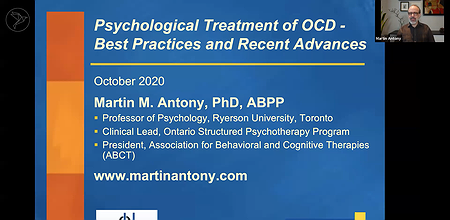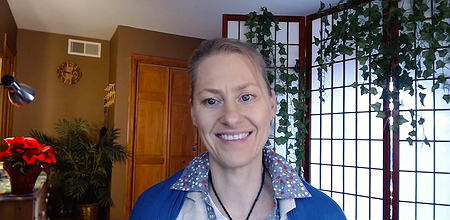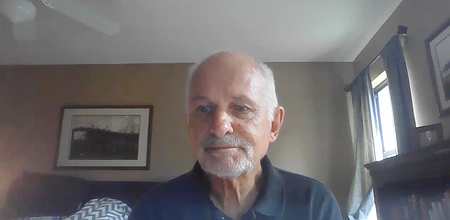A theoretical course illustrated with clinical examples. This course is composed of videos of 5 to 15 minutes each. The PowerPoint of the course to download.
Innovative Strategies for treating Complex Anxiety Disorders
Dr. Jennifer Abel, Clinical psychologist
Evaluation and Exposure Strategies to Address excessive Worry, Panic, and Phobia
Excerpt:
- 6h of continuing education
- 48 lessons that last from 5 to 15 minutes each
- 1 certificate of achievement
- 1 PowerPoint
- 1 bibliography
- 1 course evaluation
- 4 months access - automatically extended until you complete the course
- 7-day money back guarantee
- 97% of participants who completed the satisfaction survey declare they would recommend this course to a colleague
Overview
Many clients seen in clinical practice suffer from one form or another of anxiety. Unfortunately, a significant number of these patients and clients do not respond to the treatments they were offered by other therapists despite their use of empirically supported strategies such as exposure, mindfulness, and cognitive therapy.
In this workshop, Dr Abel explains how to avoid common pitfalls of ineffective anxiety treatment and demonstrates how to apply effective strategies to help your clients and patients overcome excessive worry, panic attacks and insomnia. In addition to this, you will learn specific programs for the treatment of hypochondriasis, perfectionism, catastrophizing, intolerance of uncertainty, and procrastination.
Dr Abel also presents techniques of self-control desensitization to help clients to master catching the anxiety spiral early and significantly reduce worry and panic. She also demonstrates several relaxation and mindfulness exercises, some traditional, and others unique, as well as hands-on strategies to help clients problem solve and manage their “to do” lists.
With this workshop, participants will master a quicker, more practical method of cognitive therapy and learn about traditional and newer forms of exposure therapy including flooding phobic fears and words, interoceptive exposure, and the use of technology in exposure. Finally, you will learn how to rule out sleep disorders, understand what causes and maintains insomnia, and learn evidence-based strategies to help your clients fall asleep and sleep through the night.
About the expert

Dr. Abel, clinical psychologist, completed her doctoral degree at West Virginia University and her post-doctorate at Penn State University. She is a clinical psychologist, international speaker and author with over three decades of specializing in the treatment of anxiety. She served as Assistant Director of Penn State University’s Stress and Anxiety Disorders Institute, in addition to having an active private practice. Dr. Abel has developed many innovative techniques based on empirically proven strategies that are very effective in relieving anxiety. Her numerous books, including Active Relaxation and Resistant Anxiety, Worry, and Panic: Practical Treatment Strategies for Clinicians received high praise from mental health professionals. Her most recent book is the best-selling The Anxiety, Worry, and Depression Workbook. Dr. Abel is an experienced presenter who has delivered numerous workshops for mental health and allied health professionals across the USA, Canada, and Australia.
Learning objectives
- Identify and avoid treatment pitfalls and learn evidence-based approaches to correct them
- Understand the anxiety spiral and master several methods to prevent worry and panic
- Stop negative reinforcement with various forms of exposure for panic, worry, and fear of guilt
- Treat treatment-resistant problems like perfectionism, procrastination, and others
Learning material
Syllabus
- PowerPoint
- 1. Presentation
-
Unraveling worry
- 2. Worry- definition and facts
- 3. The importance of treating worry-GAD
-
Navigating panic
- 4. Panic attack
- 5. The worry spiral
- 6. Catch the spirals early
-
Insights and research
- 7. Research with worry
- 8. White bear research
- 9. Process vs command
-
Mindfulness mastery
- 10. Worry postponement
- 11. Mindfulness as acceptance
- 12. Observation vs acceptance
-
Relaxation realms
- 13. Passive-quiet relaxation
- 14. Active relaxation-mindfulness
- 15. Labeling game
- 16. Mindfulness breathing
- 17. Tension - muscle relaxation
- 18. Differential relaxation
- 19. Muscle relaxation
- 20. Self-Control Desensitization
- 21. Active relaxation
-
Therapeutic techniques
- 22. Cognitive therapy B3
- 23. The four shoulds
- 24. Catastrophizing-Fear of uncertainty
- 25. Worry interferes with problem solving
- 26. Theory of the glass
- 27. Therapy vs medication
- 28. The sticky note
- 29. When panic looks like OCD
- 30. Negative reinforcement
- 31. Exposure therapy and negative reinforcement
- 32. Exposure therapy
- 33. Panic assessment
- 34. Imaginal exposure - video
- 35. Virtual reality
-
Interoceptive exposure
- 36. Interoceptive exposure
- 37. Interoceptive exposure example
- 38. Natural interoceptive
- 39. What is the real fear
- 40. Diaphragmatic breathing
- 41. Using humor
-
Research and medication
- 42. Final considerations
- 43. Research on panic treatment
- 44. Medications
-
When CBT doesn’t work
- 45. Treatment resistant in GAD
- 46. Emotion regulation
-
Concluding reflections
- 47. Review of worry and panic
- 48. Conclusion
- Bibliography
CE Credits
Download a certificate of successful completion.
Audience
This training is intended for mental health professionals.
Registration
Ask a question
Do you have a question? Then email us at contact@asadis.net
Frequently asked questions
-
How long do I have access to the course?
After your registration, the course is accessible anytime and from anywhere for 124 days. And if that’s not enough, we’ll automatically extend your access.
-
When does the course start?
That is entirely up to you! When you buy a course, you'll receive an access link that you can activate when you want.
-
Is there a student rate?
Yes there is! To learn more, email us at contact@asadis.net.
You may also be interested in:
Legal notice
The courses offered by ASADIS are accredited by different professional organisations. In addition, ASADIS is approved by the Canadian Psychological Association to offer continuing education for psychologists. ASADIS maintains responsibility for the program.
The CPA’s approval of an individual, group, or organization as a CE Sponsor or Provider is restricted to the activities described in the approved application or annual report form. The CPA’s approval does not extend to any other CE activity the Sponsor or Provider might offer. In granting its approval, the CPA assumes no legal or financial obligations to Sponsors, Providers, or to those individuals who might participate in a Sponsor or Provider’s CE activities or programs. Further, responsibility for the content, provision, and delivery of any CE activity approved by the CPA remains that of the CE Sponsor or Provider. The CPA disclaims all legal liability associated with the content, provision, and delivery of the approved CE activity.





